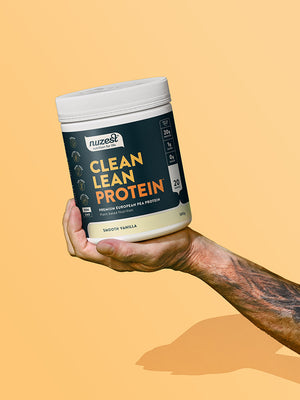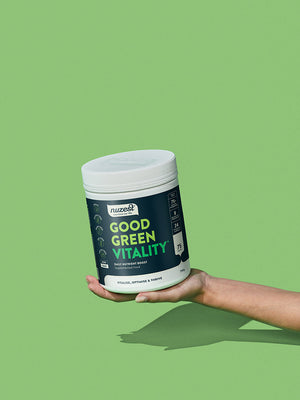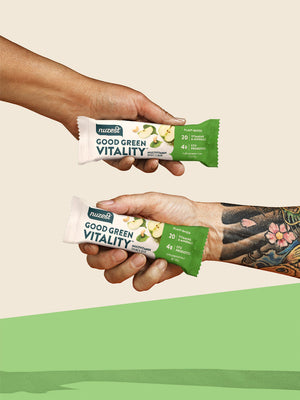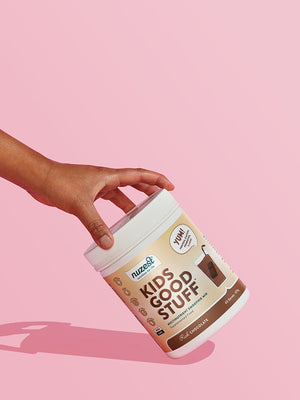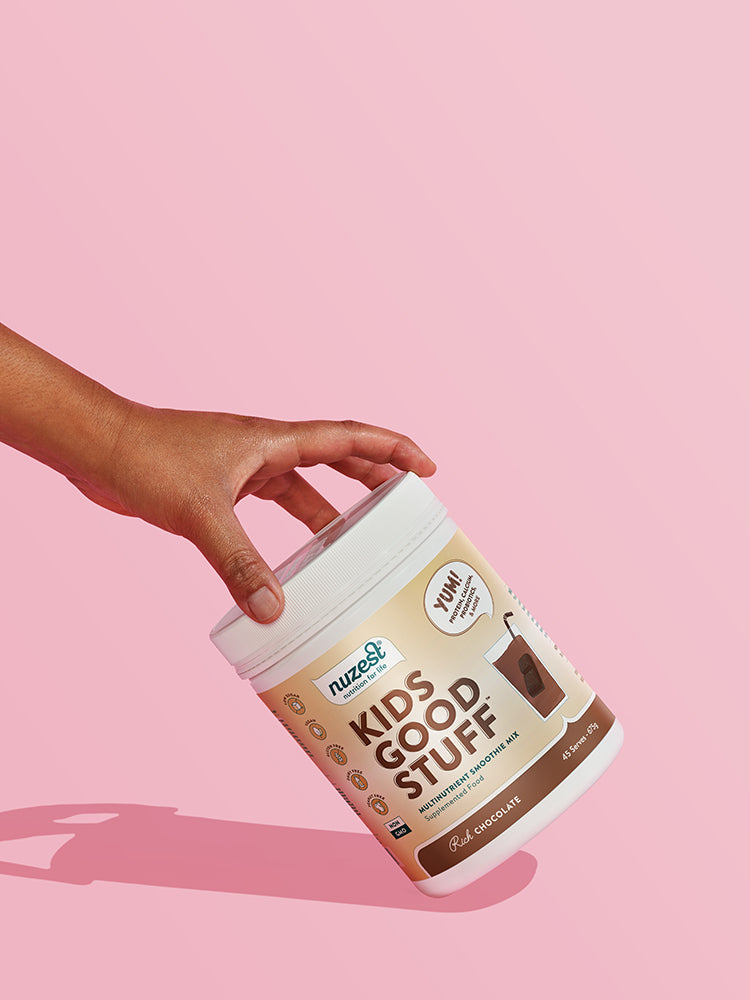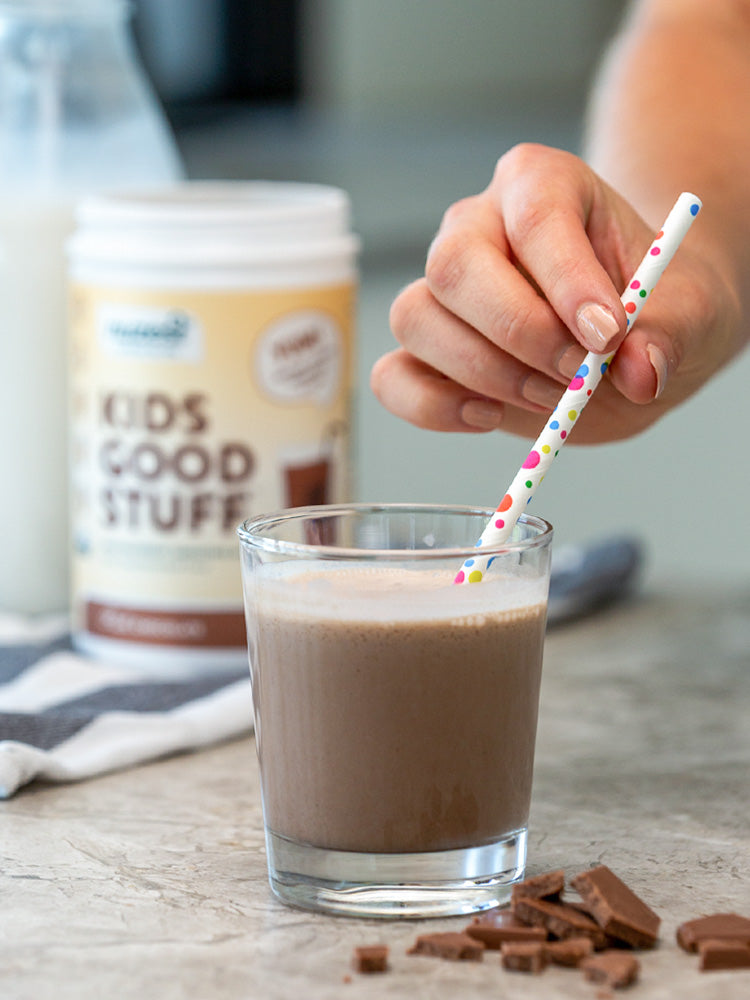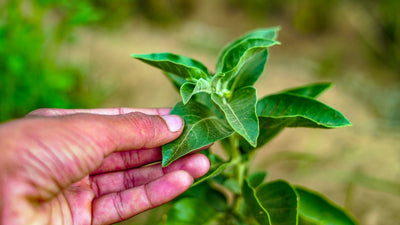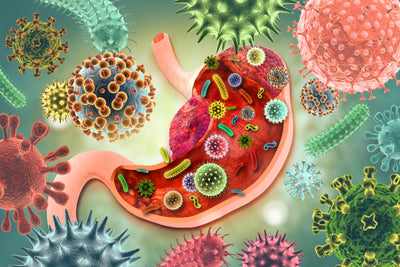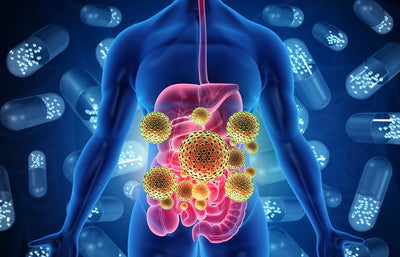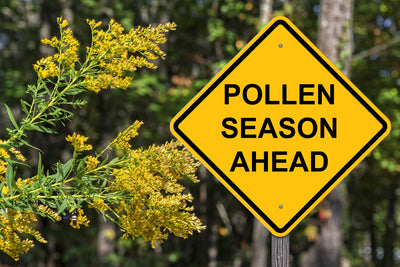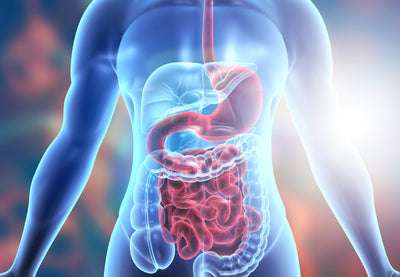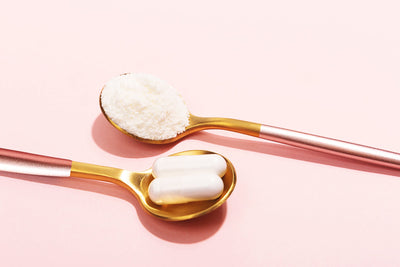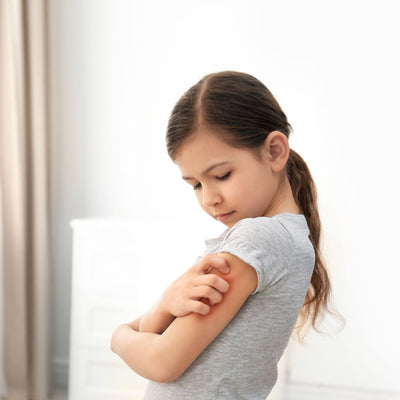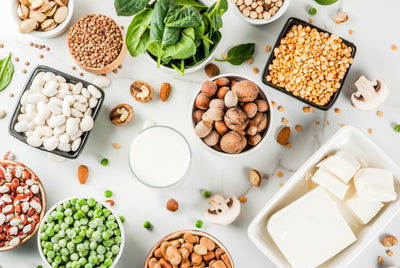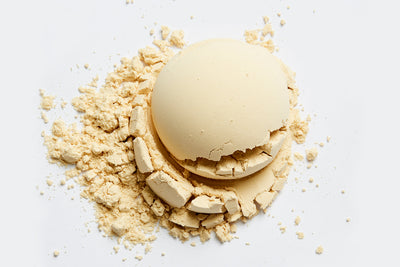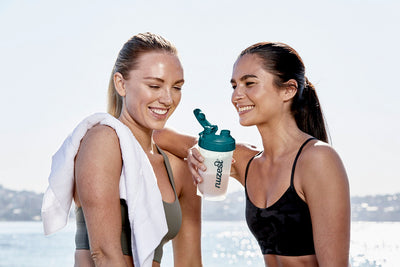7 min read
Children’s Nutrition & Immunity: How To Support Your Childs Immune System Naturally
Posted By
Hayley Budd
Written by Kira Sutherland (Accredited Practicing Dietitian)
What is the immune system?
Our immune system is our protection from viruses, bacteria and other pathogens.
It is our coat of armour as well as our armies that protect us. Our immune system is a complex and multi layered system that operates to keep us protected and well.
There are three layers of protection in our immune system, each responding to different threats.
The first part of the system is the barrier system, which is both physical and biochemical and works to trap invading organisms or substances.
This includes the skin, sweat, saliva and tears.
The second and third parts of the immune system are the actual immune cells and antibodies that work to protect us internally.
Each of these parts work together to form our overall immune system.
The defence strategy of the immune system can be divided into two categories.
The first is called ‘innate immunity’, and it refers to the immediate response of the immune system to foreign pathogens.
The other is called ‘adaptive immunity’, and it refers to parts of the immune system which use the memory of previous pathogen threats to enhance its immune response.
How is nutrition and immunity linked?
There are tight links between nutrition and immunity.
Malnutrition is considered one of the leading causes of immunodeficiency (weakened immunity) in the world.
While within first world countries we have the issue not of malnutrition due to lack of food, but issues of nutritional deficiency from the inadequate nutritional composition of over processed and discretionary foods and drinks.
What weakens the immune system?
Certain lifestyle factors can weaken the immune system. Poor sleep patterns, exposure to pollution/toxic chemicals and a lack of clean air or sunshine can create oxidative stress on the body that in turn can modify or suppress the immune system.
For infants, children and teens, diet can play a major role in either supporting or hindering the immune system.
The role that the diet plays on a child's immunity is twofold. Firstly, a poorly composed diet will lead to nutritional deficits that may impact proper immune function through suppression or dysfunction of the immune response.
Secondly, a diet of highly processed, refined, discretionary foods may lead to oxidative stress and inflammation which can further burden the immune system.
What are the health consequences of having a weak immune system?
It has been reported that on average, the Australian child can get 5-10 colds a year.
This is not only an issue for the child but for the caretaker and family members as well.
Time off school or work, lack of exercise, or subsequent family members becoming ill can all create a cycle of illness and stress.
A child who is unwell is likely to also have a diminished appetite, which in turn leads to decreased nutritional intake and therefore poorer nutritional status.
This potentially leads to greater nutritional deficiencies, thus resulting in compromised immune function and lower immunity8.
What helps to strengthen the immune system?
There is a strong correlation between individuals who have robust immune systems and the qualities and interactions of the following four factors: genetics, environment, lifestyle, nutrition.
Whilst we have limited control over genetics and environment, we do have a good ability to influence nutritional status and lifestyle factors, especially for children and teens.
What foods and nutrients help to support the immune system?
When we think of immune supporting nutrients and foods, most of us will immediately think of Vitamin C, garlic and cod liver oil.
However, if you have ever tried to give a child, particularly a picky eater, garlic or cod liver oil you’ll know that getting beneficial nutrients and foods into their diet isn’t always easy.
From a nutrition perspective, some of the vitamins, minerals, and functional foods that are required for a strong immune system include vitamin A, vitamin C, vitamin D1, zinc and probiotics.
Each of these micronutrients work in different ways to help strengthen the immune system. Some help support the physical barriers of defence, while other nutrients strengthen and support the immune cells and antibodies to perform their roles.
Nuzest Kids Good Stuff contains a number of immune supporting nutrients, including vitamin A, vitamin C, zinc, selenium probiotics and more, to help support children’s health.
Available in three yummy flavours, rich chocolate, wild strawberry and vanilla caramel, Nuzest Kids Good Stuff is a great way to help your kids get all of the nutrients they need to help keep them happy from the inside out.
For a list of more immune supporting plant-based foods, check out this article.
Read more
11 Body Systems: What is the immune system and how can you support it...
References
- Maggini S. Pierre A. and Calder P. Immune function and micronutrient requirements change over the life course. Nutrients 2018;10(10)1531
- Calder PC. Feeding the immune system. Proc Nutr Soc. 2013;72(3):299-309
- Katona P, Katona-Apte J. The interaction between nutrition and infection. Clin Infect Dis. 2008;46(10):1582-1588
- Wu D. et al. Nutritional modulation of immune function: Analysis of evidence, mechanisms, and clinical relevance, Front Immunol 2019; 9 3160
- Drake V. Immunity in depth. Linus Pauling Inst. Oregon State University.c2010-2020
- Health Direct.Colds and flu – an overview. 2018
- NHMRC, Australian Government Department of Health and Ageing, New Zealand Ministry of Health. Nutrient Reference Values for Australia and New Zealand. (Revised Edition 1.2) Canberra: National Health and Medical Research Council; 2006. P51
- Silvia Maggini, Adeline Pierre, and Philip C. Calder. Immune Function and Micronutrient Requirements Change over the Life Course. 2018 Oct; 10(10): 1531.
-
Related news
min read
An Introduction to Gut Health & Nutrition – 5 Must See Articles
Gut health significantly affects overall wellbeing, influencing brain function, immunity, and metabolism. A balanced gut microbiota, influenced by diet and environment, can potentially enhance health, aid digestion, and reduce allergies. The roles of probiotics and prebiotics in gut health are also discussed.
min read
Probiotics vs. Prebiotics
Unleash gut health with probiotics and prebiotics! Strengthen digestion, immunity, and overall well-being. Try Nuzest's Good Green Vitality for convenient support with 8 billion CFU of probiotics. Take charge now!
min read
The Link Between Gut Health & Allergies - Plus 5 Top Tips to Help
Discover the link between gut health and allergies, and how the gut microbiome influences the body's immune response to allergens. Learn how adopting a balanced diet with prebiotics and probiotics can support gut health, reducing the risk of allergic reactions. Explore solutions for allergy relief and fostering a healthier gut with Nuzest’s multi-nutrient formula, Good Green Vitality.
min read
The Great Diet Debate: Unravelling the Tapestry of Popular Eating Plans
Exploring popular diets such as the Mediterranean, Ketogenic, Plant-Based, Paleo, and Intermittent Fasting, this overview highlights their principles, benefits, and considerations. It emphasizes the importance of finding a dietary pattern that aligns with individual health goals and preferences, while suggesting the potential benefits of incorporating a multi-nutrient supplement for overall health.
min read
The Gut Connection: How to Improve Your Digestion and Gut Health in 6 Steps
Discover the significance of gut health and its impact on digestion and overall well-being in this insightful article. Learn six practical steps, including maintaining a balanced diet, staying hydrated, managing stress, and using antibiotics wisely, to promote a healthy gut and enhance vitality.
min read
Does Gut Health Affect Your Immune System? | Do These 6 Things
The gut microbiome, which consists of trillions of bacteria in our digestive tract, plays a crucial role in supporting our immune system and overall health. Consuming probiotics and prebiotics, staying hydrated, managing stress, limiting processed foods, and engaging in outdoor activity and exercise are effective strategies to promote a healthy gut and enhance immunity.
min read
What is Collagen? Types, Sources and Benefits of Supplementation
Collagen is essential for joints, bones, muscles, ligaments, tendons, cartilage, skin, hair and nails.2 It is one of the primary structural proteins of connective tissue and plays a crucial role in the body by cushioning, strengthening, hydrating, binding, and connecting tissues together.3 Connective tissues are able to provide physical and mechanical support through the collagen, elastic and reticular fibres
min read
Kids Good Stuff for Skin Health
How can you ensure your kids have healthy skin? A part from the obvious, what nutrients can we provide our kids to ensure their skin stays in tip top shape?
min read
Maximising Mood In Your Kids
Almost 1 in 7 children and adults aged 4-17 had been diagnosed with a mental health disorder. Amy Butler discusses good nutrition and lifestyle modifications, that can help to reduce the risk.
min read
Long-Lasting Energy For Kids
Children and adolescents are going through massive periods of growth and development. To keep up with the demands of school, extracurricular activities, sports and friendships, kids often need a bit of an energy boost. In our latest blog we break down some specific nutrients for energy, to help support growing kids, and the best places to source them from.
min read
Setting Health Goals & Staying Motivated in 2021
Use this tried and tested goal strategy to set smaller, specific goals to avoid the overwhelm of unrealistic and vague health objectives.







